For much of my life, my father was more of a concept than a presence. My parents separated when I was four, and before that, I have only faint, fragmented memories of him. One such memory: him attempting to give me a ride on his motorcycle—a thrill I begged to escape. Another: a bloody accident where he crashed that same motorcycle under a truck. I remember the bandages more clearly than his face.
After the separation, my connection to my father all but disappeared. I recall visits to my paternal grandparents in the Jamaican countryside, but my father was never part of those trips. Occasionally, there were strained visits, often punctuated by arguments between him and my mother. Her words about him were sharp, full of disappointment—he wasn’t a provider, he was unfaithful. By 1973, the last image I had of him was signing papers that would allow my mother to take me and my sister to the United States.
I wouldn’t see him again until the summer of 1982, nearly a decade later. I was 19. My brothers and I visited him in Jamaica. A young woman with a newborn greeted us at the door. My father, we were told, was at the local bar. When we found him, he didn’t recognize me at first—I had grown into a tall, bearded young man. Then came the shock: when asked about the woman and child, he proudly declared, “That’s number 37!” High-fives and laughter followed. My stomach turned. How could he boast about fathering 37 children when I, his own son, had never felt his care? I walked out.
I left Jamaica with anger. I shared the experience with my mother, who, despite everything, urged me for years to forgive him—to open my heart. I wasn’t ready. I told her I’d reach out if and when I felt called to.
That call came almost unexpectedly—just before Father’s Day, 2002. I had a planned trip to Jamaica for a friend’s birthday. Days before I left, something shifted inside me. I picked up the phone and called my father. “I’m coming to Jamaica. I’d like to see you.”
He agreed.
On the Sunday of our visit, halfway there, I realized it was Father’s Day. The timing hit me hard. The only other Father’s Day I remembered was in 2001, when I’d called my mother and told her, “Happy Father’s Day”—a joke, but heartfelt, acknowledging the role she had played. Hours later, she suffered a stroke and died 18 days after. That memory came flooding back.
I wept.
When I arrived at my father’s house, he was already waiting. We exchanged a handshake-turned-hug—but he didn’t return the embrace. His body stiffened. I heard his hands slap awkwardly against his own thighs. I let go, confused and hurt. What followed was an evening of small talk, surface-level connection, and mixed emotions. He was warm and playful with his youngest children. I felt like an outsider, trying to understand where I fit.
Before I left, I invited him for a walk—hoping for something real. I placed my hand on his shoulder and said, “You and Mom didn’t work out, but nothing went wrong between you and me. I’d like to start over—to have a father-son relationship.” He responded without hesitation: “OK. I need US$2,500.”
Shock.
I didn’t react. I bought time, saying I’d look at my finances when I got home.
A week later, my phone rang. “It’s your father. When are you sending the money?” He called again the next Saturday. Same words. No “How are you?” No interest in me. I felt used, invisible. I realized my intent to connect had been more about filling the void left by my mother’s death than genuinely seeing him. I decided to wait. If he wanted a relationship, he could reach out.
He never did.
It wasn’t until 11 years later, during a trip to Jamaica for my 50th birthday, that I chose to visit him again. This time, I brought my brother—not his son, but someone my father had helped raise. When we arrived, he greeted my brother warmly, hugging him. He didn’t even recognize me at first. When he did, he said, “You threw me under the bus when I was in need.”
It was time to be honest.
I asked my brother for space. I told my father everything: the hug that never was, the money request, the silence over 11 years. I admitted my original visit was selfish. I had tried to find a father to replace the one I lost. But I also made clear: I wouldn’t buy his love. I would love to have a relationship—but only if it was real.
He stood in silence and so did I.
Eventually, I left. But something shifted. In the following weeks, I found myself softening. I decided to give without expectations. I sent him money—not to earn his affection, but because I wanted to. I called to let him know. A few hours later he called back and said hello. Silence followed. I waited. Then, gently, he broke it and eventually said thank you.
From that point, we began speaking. Slowly. Carefully. The conversations were awkward at times, but over the next three years, they became easier. Laughter was rare, but present. I took the lead, knowing he wasn’t much of a talker. I accepted who he was, rather than who I wished he had been.
Then in September 2016, I received a call—he was gravely ill. I changed my travel plans and flew to Jamaica. It was his birthday when I arrived, but there was no celebration. He weighed about 80 pounds and looked a shell of himself. We soon learned he had multiple myeloma, and not much time left.
Caring for him in those final days was something I didn’t expect to feel prepared for—but somehow, I was. I handled appointments, treatments, and pain management. I paid for expensive medication without hesitation. The pain of the past no longer held me hostage. What mattered was now.
On the final day I saw him, I knew he wouldn’t make it much longer. I placed my hand over his heart and said, “I love you. I forgive you. Please forgive me.” His mind was already drifting—he called me “Uncle Aaron,” unsure of who I was. But I knew who I was.
And I was at peace.
Today, as a therapist, I sit with other men who carry their own tangled stories of fatherhood—some as sons, others as fathers themselves. I don’t have a prescription for healing, but I do offer presence, patience, and the kind of listening I once longed for.
Sometimes we grieve what never was. Sometimes we carry the weight of what should never have been. And sometimes—only when we’re ready—we begin to make peace, not to excuse the damage, but to free ourselves from its hold.
This work humbles me. It reminds me that healing doesn’t mean forgetting or fixing—it means choosing to live with our stories open, not closed. That choice, for me, began with a single step: forgiving a man who never became the father I needed, but who, in the end, helped me become the man I am.
Cosmore Marriott


